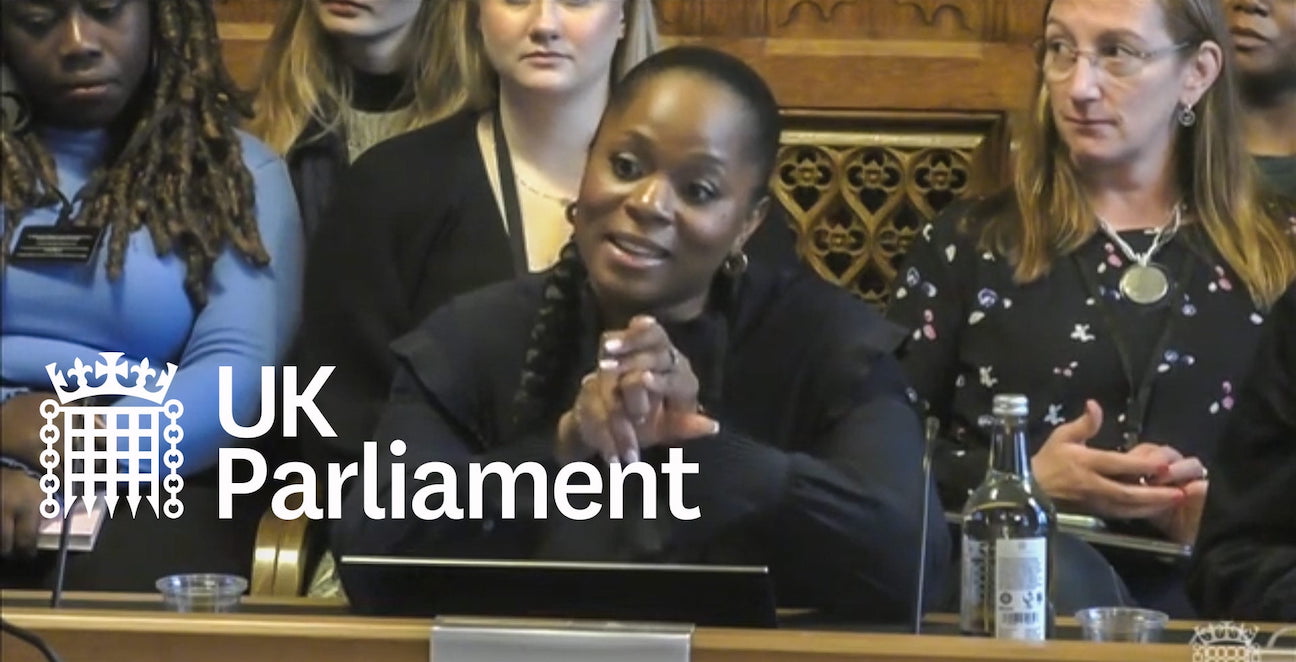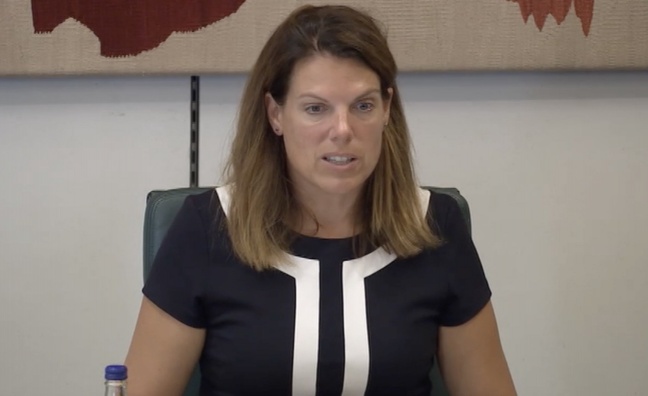Women pursuing careers in music face “endemic” misogyny and discrimination, according to an influential report by MPs.
The Women and Equalities Committee (WEC) report warns that the sector is “dominated by self-employment and gendered power imbalances”.
Making a series of wide-ranging recommendations, the cross-party committee of MPs called on ministers to take legislative steps to amend the Equality Act to ensure freelance workers have the same protections from discrimination as employees and bring into force section 14 to improve protections for people facing intersectional inequality.
It also recommended the government should legislate to impose a duty on employers to protect workers from sexual harassment by third parties, a proposal the government initially supported and then rejected last year.
WEC’s Misogyny In Music report said that the idea that the music industry was a “boys’ club” was raised repeatedly by those giving evidence. The report found that sexual harassment and abuse in the wider music industry is common, and the non-reporting of such incidents is high.
“The evidence we received suggests sexual harassment and abuse is more prevalent in particular environments, in particular educational settings, recording studios and live music venues,” stated the report.
The report called for strengthened requirements for industry areas where harassment and abuse are known to take place. It recommended that studios, music venues and the security staff that attend them should be subject to licensing requirements focused on tackling sexual harassment, and that managers of artists should also be licensed.
Caroline Nokes MP, chair of the Women and Equalities Committee, said: “Women’s creative and career potential should not have limits placed upon it by ‘endemic’ misogyny which has persisted for far too long within the music industry.
“Our report rightly focuses on improving protections and reporting mechanisms, and on necessary structural and legislative reforms.
“However, a shift in the behaviour of men – and it is almost always men – at the heart of the music industry is the transformative change needed for talented women to quite literally have their voices heard and be both recognised and rewarded on equal terms.”
Women’s creative and career potential should not have limits placed upon it by ‘endemic’ misogyny
Caroline Nokes
Although the report found that female representation in the music industry is “improving, particularly at senior levels”, it suggested that progress is not uniform and gender imbalance remains entrenched in certain areas.
“The music industry and government should increase investment in diverse talent and make more funding available to the schemes that support it,” concluded the report. “Pathways to careers for women working in the sector must improve, particularly in key gatekeeping roles such as A&R and other male-dominated areas including sound engineering and production."
MPs on the committee called for record labels to commit to regular publication of statistics on the diversity of their creative rosters. They added that all organisations with more than 100 employees should be required to publish data on the diversity of their workforce and gender and ethnicity pay gaps.
“Women have significant additional barriers to pass to get a foothold in the music industry and must navigate acts of passive aggression, ridicule, and misogyny to have a sustainable career,” concluded the report. “Female artists are routinely undervalued and undermined, endure a focus on their physical appearance in a way that men are not subjected to, and have to work far harder to get the recognition their ability merits. Despite increases in representation, discrimination and misogyny remain endemic. These concerns are intensified for women faced with intersectional barriers, particularly racial discrimination.”
Charisse Beaumont, CEO of Black Lives in Music (BLiM), gave evidence to the committee on the first day of the inquiry, based on BLiM's 2021 Being Black in the UK Music Industry Pt. 1 survey.
“I'm deeply moved by the findings of the WEC Misogyny in Music Report,” said Beaumont today. “It validates our experiences, particularly those of Black women in the music industry. The data mirrors the challenges we face and amplifies our voices, calling for an industry where everyone, regardless of background, can flourish. Black Lives in Music fully support the recommendation for the music industry to collaborate with CIISA to tackle bullying, harassment and discrimination, and we eagerly anticipate the launch of our survey investigating bullying and harassment in the music industry next month.”
She added: “We at Black Lives in Music are profoundly grateful to everyone who shared their experiences for the Being Black in the UK Music Industry report. Your courageous voices were instrumental in the WEC Misogyny in Music inquiry and continue to form our strategy for industry wide change.”
Calling on the industry to act on all of the recommendations in the report, Beaumont concluded: “It's essential that together we foster an industry that is safe, respectful, and empowering for all.”

BPI CEO Dr Jo Twist OBE and BPI Chair YolanDa Brown OBE DL, said in a joint statement: “Misogyny in music and across society is completely unacceptable. This report contains some thoughtful recommendations and recognises that all parts of our industry have a shared responsibility to tackle this important issue head on. We are already working with the wider music sector to build on the progress our label members are leading the way in making and in supporting the work of UK Music and the ongoing development of CIISA. As the Committee acknowledges, record companies have increased representation of women in executive positions, and we’re seeing more women – as artists and in their teams – achieve success.”
One particularly worrying aspect that emerged during the hearings was the use of non-disclosure agreements (NDAs). The report cited distressing testimonies of victims “threatened into silence”.
The committee urged ministers to prohibit the use of non-disclosure and other forms of confidentiality agreements in cases involving sexual abuse, sexual harassment or sexual misconduct, bullying or harassment, and discrimination relating to a protected characteristic. They recommended that the government should consider a retrospective moratorium on NDAs for those who have signed them relating to the issues outlined.
WEC supported the Office for Students’ proposed new condition of registration and potential sanction for educational settings aimed at improving protections for students. The committee urged the OfS to “implement its proposals swiftly and to enforce them robustly”.
The establishment of the Creative Industries Independent Standards Authority (CIISA) was welcomed by the committee. But the committee cautioned that it is “not a panacea for all of the problems in the industry” and “time will tell whether it has the powers required to drive the changes needed”.
In a statement, the Creative Industries Independent Standards Authority welcomed the Women and Equalities Committee recommendations and commitment for CIISA to “help shine a light on unacceptable behaviour in the music industry”.
“The evidence given in WEC’s Misogyny in Music report reveals an industry with an alarming prevalence of misogyny, discrimination, and gendered power imbalances,” said the statement. “CIISA supports this essential report. As the report concludes there are a number of urgent actions required to tackle these widespread issues including the creation of CIISA which will provide a single point of accountability. CIISA will be a ‘single front door’ for those working in the music industry – and across all the creative industries – to confidentially report unacceptable behaviour and use this insight to raise awareness and tackle concerns directly. CIISA will also unify existing best practice in promoting inclusive workplaces and addressing negative behaviours through the publication of its standards.”
CIISA is currently working with a range of stakeholders to co-design its future services, which will include providing support, advice, mediation and adjudication where required. It will go live with a range of initial services at the end of the year.
Rebecca Ferguson, board director of The Ivors Academy, who gave evidence to the Committee, said: "I welcome the recommendations of the Women and Equalities Committee and I look forward to the urgent recommendations being materialised into something that women in music can feel confident about. The opportunity is now there for a safer music industry. The Women and Equalities Committee report has carved a very clear and thought out path to change. Alongside many other women, I look forward to the government's plan of action."
Responding to the WEC’s report, UK Music interim chief executive Tom Kiehl said: “There must be zero tolerance for misogyny and all forms of discrimination in the music industry, which is working hard to tackle these issues.
"We recognise there is still more to do, that misogyny continues to exist and we are striving to bring about positive changes. We are working right across the sector to ensure the music industry is an inclusive place for everyone to work.
“Our unrelenting drive for change will continue as we tackle misogyny by calling it out and changing practices that disadvantage or hinder women.”
He added: “We will continue to make further changes by ensuring equality of pay and promotion, gender balance, and boosting transparency over pay and conditions. This will build on UK Music and its Diversity Taskforce's Ten Point Plan and 5 P's initiatives, the principles of which are echoed in the report.
“This report rightly recognises the freelance nature of the music industry, where many are self-employed. We are pleased to see that the report recommends to government that they introduce protections for freelance creatives that we have sought in our recent manifesto.
“We will continue our work with the government to drive out misogyny, bullying, abuse and harassment to ensure the UK music business is a welcoming place for women to work and pursue a career.”
“We will also continue to engage with the development of the Creative Industries Independent Standards Authority (CIISA) and other proposals to ensure working in our sector is a positive experience for all.”
Silvia Montello, CEO of AIM, said: “The Misogyny in Music report makes for uncomfortable but sadly unsurprising reading – given my 34 years in the industry I have witnessed, experienced and campaigned against the inequalities and discrimination sadly still faced by women in music. And as one of the ‘relatively few’ women in the upper age bracket I can attest to the many challenges of navigating through and maintaining a successful music career and achieving a leadership position. It should not still be this hard, here in 2024, for women to be supported to succeed and to be taken as seriously as our male counterparts.
“As the report points out, it is not enough to focus simply on increased numbers of women in our industry but to ensure that they are treated equally and paid equally - and our industry still has much work to do on both counts.
“AIM welcomes the recommendations in the report which look to add extra safeguarding measures to protect women whatever their role, with more stringent training and certification for those who work with women to avoid abuse, harassment, sexual assault and bullying. We also welcome the recommendations to provide support for mothers, carers and freelancers.”
Subscribers can read Nadia Khan on tackling misogyny in music.












